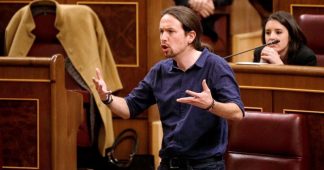Catalan nationalism isn’t the progressive cause you might think
Many independence supporters are wealthy, insular and resent subsidising poorer people in Spain. This is not a case of David versus Goliath
For many Europeans, it was impossible not to feel sympathy for Catalans when images of riot police suppressing an illegal election appeared all over the media at the beginning of October. Then came the dismissal of the Catalan government by Madrid after the Spanish senate approved the execution of article 155 of the constitution. Finally, a judge in Madrid ordered eight members of the deposed Catalan government to be remanded in custody pending possible charges of rebellion, sedition and embezzlement of funds, among others.
These events have aroused controversy in the sphere of European public opinion and garnered Madrid some criticism for its handling of the crisis. However, most analyses lack understanding of the movement behind the Catalan drive for independence, namely Catalan nationalism. In the runup to the next regional elections scheduled for 21 December, it might be useful to provide English-speaking audiences with some facts that have remained somewhat obscured.
To begin with, Catalonia is far from oppressed under any sensible analysis. It’s one of the highest-income regions in Spain, representing about a fifth of its GDP. Catalans are more educated and have lower unemployment than the Spanish average. Since 1977, Catalans have enjoyed a regional government vested with extensive powers in tax matters, education, public services and foreign representation, and they use and promote their own language to the point of marginalising Castilian, which happens to be the most widely spoken language in Catalonia.
Although regional institutions were suspended from 1938 to 1977, Catalan bourgeois elites have displayed remarkable survival instincts, entering into alliances with the forces of the Spanish right whenever they deemed it necessary to maintain order. Catalan conservative nationalists have ruled the region for more than three decades in the democratic period. These same nationalists have voted in favour of about half of the national budgets during this period. If changes are to be made in Spain’s federal structure, they shouldn’t be based upon the false assumption that Catalonia has had no role in national politics.
Read more at https://www.theguardian.com/commentisfree/2017/nov/08/simple-facts-catalan-secessionism-selfish-goal











